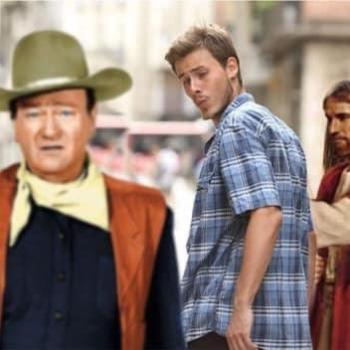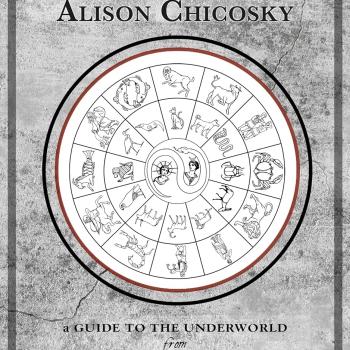Latter-day Saints ("Mormons") have no particular liturgy for Holy Week. We recognize and celebrate Easter, but Holy Week is seldom noticed. I once asked a student to give an invocation for a lecture at BYU and asked him not to forget to mention that it was Good Friday. Though he had served as a missionary and been in college at least two years, he didn't know what I was talking about. He was unusual in not knowing what Good Friday is, but he wasn't unusual in not recollecting that it was Good Friday.
Why is that? I don't know. We don't have doctrinal reasons for not celebrating Holy Week. I suspect that our nonobservance has as much as anything to do with the Puritan background of many early Mormon converts. They made the first decisions about the shape of Mormon worship, and we've inherited their decisions. So when it comes to liturgy we are about as plain as they come (except in the temple). But reflecting on Holy Week can be as good for Mormons as it is for any other Christians, so let me reflect a bit.
Within Holy Week, today is Maundy Thursday. Maundy, ultimately from mandatum, "commandment," reminds us of Jesus washing the apostles' feet and the commandment he gave after doing so and sharing a communal meal: "A new commandment I give unto you, that ye love one another; as I have loved you, that ye also love one another" (Jn. 13:34). We must love as he loved. He showed us the form of that love by serving as the lowest slave, then eating with his disciples as family. Perhaps together the two are the penultimate symbolic enactment of the Christian life.
Traditionally Maundy Thursday has been a day for remembering our obligations to the poor: "Inasmuch as ye have done it unto the least of these my brethren, ye have done it unto me" (Mt. 25:40).
Like the Bible, the Book of Mormon has a good deal to say about those obligations. It repeats Jesus' benediction, "Blessed are the poor in spirit who come unto me, for theirs is the kingdom of heaven" (3 Nephi 12:3; cf. Mt. 5:3), and Isaiah's woe:
Woe unto them that decree unrighteous decrees, and that write grievousness which they have prescribed; to turn aside the needy from judgment, and to take away the right from the poor of my people, that widows may be their prey, and that they may rob the fatherless! (Is. 10:1-2)
But the Book of Mormon also speaks in its own voice, tying our obligation to the poor to our dependence on God. A prophet-king, Benjamin, says:
If God, who has created you, on whom you are dependent for your lives and for all that ye have and are, doth grant unto you whatsoever ye ask that is right, in faith, believing that ye shall receive, O then, how ye ought to impart of the substance that ye have one to another. And if ye judge the man who putteth up his petition to you for your substance that he perish not, and condemn him, how much more just will be your condemnation for withholding your substance. (Mosiah 4:21-22)
To this we can add Nephi's woe:
Wo unto the rich, who are rich as to the things of the world. For because they are rich they despise the poor, and they persecute the meek, and their hearts are upon their treasures; wherefore, their treasure is their god. And behold, their treasure shall perish with them also. (2 Nephi 9:30)
Together Nephi and King Benjamin sum up the Book of Mormon's consistent, insistent reminder that our salvation depends on how we deal with each other, and that our treatment of those who have less than we is the best sign of our dealings in general.
Maundy Thursday also commemorates the Savior's institution of the Eucharist. We call it "the Sacrament":





